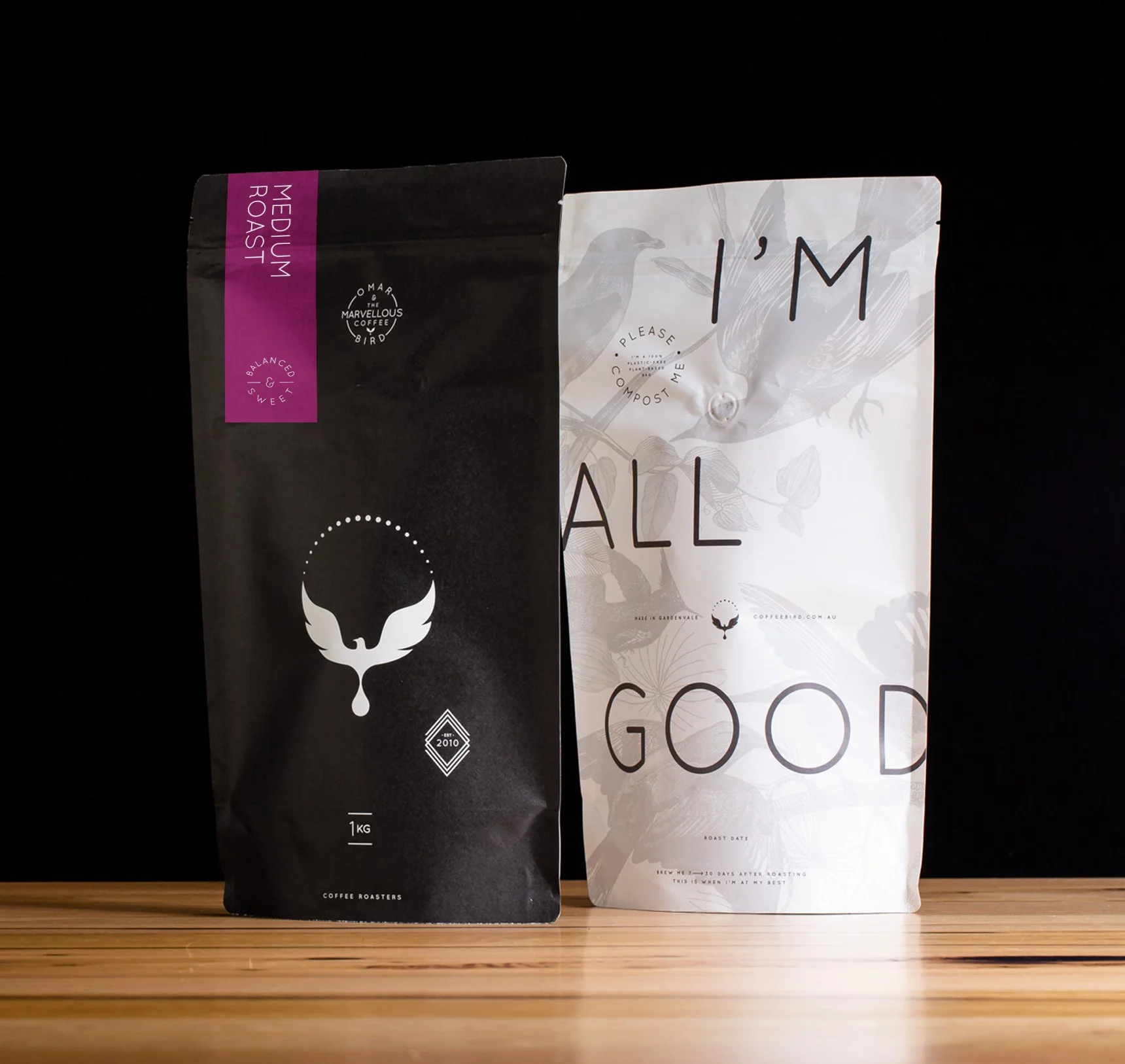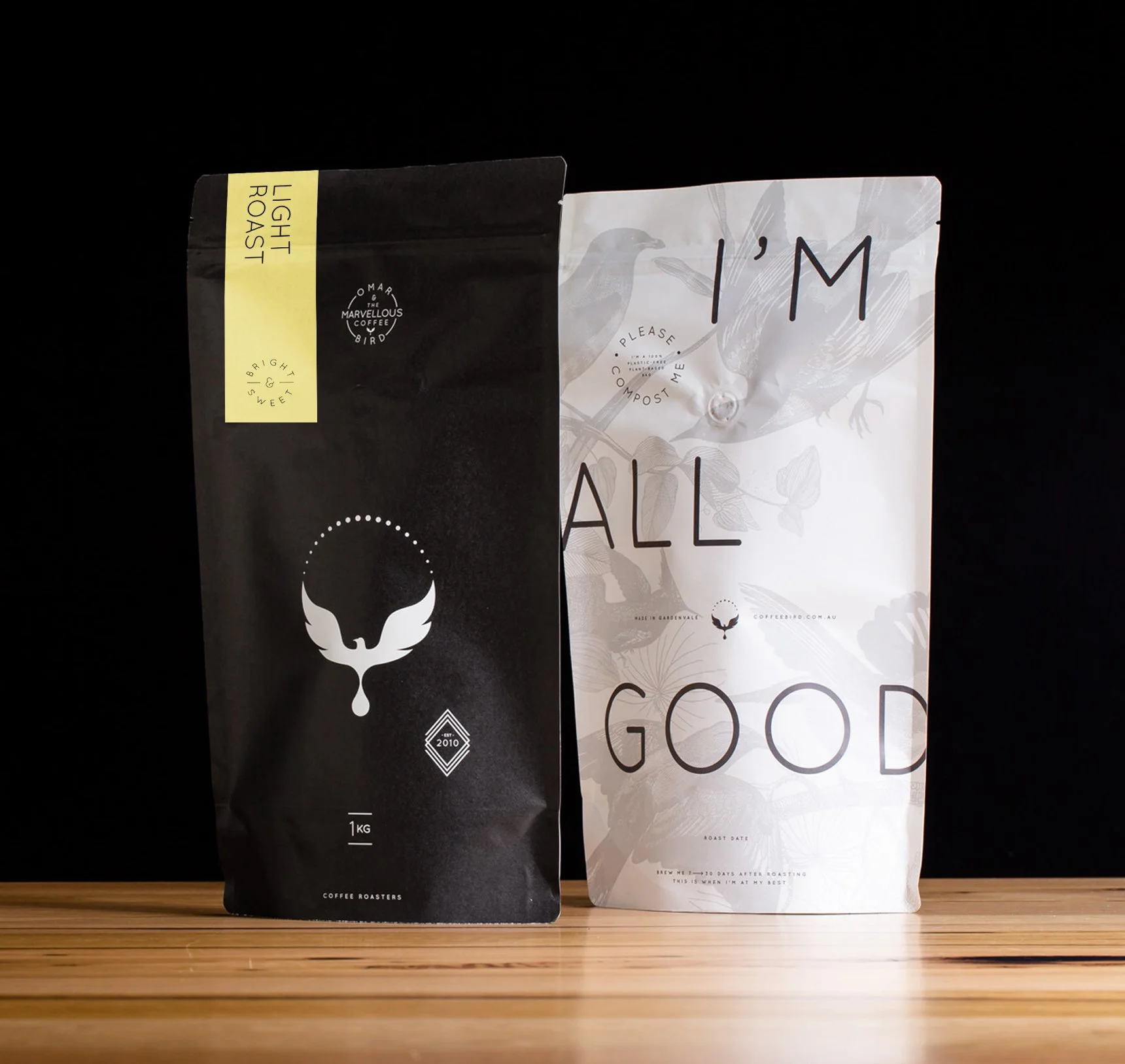The Perfect Coffee
Let’s find your match

Tell us how you drink
your coffee & we'll help you
pick the right one.
We think you'll like
This coffee is fragrant, complex and sweet with notes of caramel, chocolate and milk tea.
Varietal: Gesha
Processing: Washed
This coffee is 100% Gesha, which is probably the most famous of all of the varieties of Arabica coffee. This coffee got its name from the forest in which it was found in Ethiopia. Gesha coffee is famed for its excellent cup profile. The trees are quite particular about where they like to grow. They are extremely susceptible to plant disease, very low-yielding and perform best in very high altitudes. The only reason a farmer would plant this variety is to hope for that delicious cup profile, and the high price it demands. Planting Gesha trees doesn’t guarantee a great cup of coffee. The trees have to be grown and cared for in just the right way.
The cherries are hand-picked when ripe, meticulously sorted, then left to sit for 24 hours, exposed to air. The cherries are then dry pulped and placed in containers for 96-144 hours depending on temperature. The coffee is then washed with clean water and left to dry on wooden floors for 24-48 hours until it reaches 30-40% moisture. It is then transferred to purpose-built multi-tiered drying racks that protect the coffee from exceeding 40°C while drying to the desired moisture level in 20-35 days. The coffee is frequently turned to ensure even drying.
This is a deliciously creamy, sweet and nuanced cup of coffee.
Coffee is exempt from GST.
This coffee is rich and sweet with notes of caramel and cocoa.
Varietal: Bourbon
Processing: Washed
This coffee comes from the town of Planadas, in the Tolima region of Colombia. The Enciso Franco family have owned El Triunfo since 2014. Camilo Enciso is a well respected figure in the region, and great advocate for co-operative farming in the Planadas area.
This coffee is 100% Bourbon, which is a variety of Arabica coffee that is well known for its excellent fruit quality. The trees are quite tall, low- yielding and are susceptible to most known coffee plant diseases. With more farmers focusing on hybrid species, which give greater yield and disease resistance, it’s becoming more and more rare to enjoy single variety coffees.
The cherries are hand-picked when ripe, meticulously sorted, then left to sit for 24 hours, exposed to air. The cherries are then dry pulped and placed in containers for 96-144 hours depending on temperature. The coffee is then washed with clean water and left to dry on wooden floors for 24-48 hours until it reaches 30-40% moisture. It is then transferred to purpose-built multi-tiered drying racks that protect the coffee from exceeding 40°C while drying to the desired moisture level in 20-35 days. The coffee is frequently turned to ensure even drying.
All of this effort shows in the cup. A luxuriously rich and sweet coffee.
Coffee is exempt from GST.
This coffee is fragrant and floral with a citrusy sweetness.
Varietal: Batian | Ruiru 11 | SL28
Processing: Washed
Kianjuki Factory is located in the Embu region of Eastern Kenya. This factory (or Washing Station) is owned and operated by the Kirurumwe Farmers’ Cooperative Society (FCS). There are 800 farmers who deliver their fruit to the Kianjuki Factory.
The coffee cherries are picked when ripe, and immediately delivered to Kianjuki. Only the ripest and highest quality fruit is accepted. These cherries are then pulped on a disc-pulper and fermented under water for 12-16 hours. The fermented coffee is then washed to remove any remaining mucilage. The cleaned parchment coffee is then laid out to dry on raised drying beds for 7-14 days, where it’s regularly raked to ensure even drying.
The washed process using a relatively short period of wet fermentation allows this coffee’s inherent flavour to shine through.
Coffee is exempt from GST.
This coffee is fragrant and floral with notes of cocoa and caramel.
Varietal: Batian | Ruiru 11 | SL28
Processing: Washed
Kevote Factory is located in the Embu region of Eastern Kenya. This factory (or Washing Station) is owned and operated by the Kirurumwe Farmers’ Cooperative Society (FCS). There are 1300 farmers who deliver their fruit to the Kevote Factory.
The coffee cherries are picked when ripe, and immediately delivered to Kevote. Only the ripest and highest quality fruit is accepted. These cherries are then pulped on a disc-pulper and fermented under water for 12-16 hours. The fermented coffee is then washed to remove any remaining mucilage. The cleaned parchment coffee is then laid out to dry on raised drying beds for 7-14 days, where it’s regularly raked to ensure even drying.
The washed process using a relatively short period of wet fermentation allows this coffee’s inherent flavour to shine through.
Coffee is exempt from GST.
This blend tastes great with milk.
—
Brazil - Minas Gerais - Sul de Minas
The South of Minas Gerais (Sul de Minas) is responsible for 30% of Brazil’s total Arabica coffee production. The relatively flat landscape combined with high minimum wages has led most farms to opt for mechanical harvesting over selective hand-picking.
The majority of coffee in Brazil is processed naturally, where the fruit dries on the tree. The mechanical harvesters remove the ripe and dried fruit from the tree and transport it to concrete patios where the coffee is laid out to dry. Many coffee estates will use mechanical driers to finish the drying process evenly and accurately. State of the art colour sorting and density grading equipment enable high quality coffee by removing any discoloured, unhealthy or defective coffee beans.
The natural process makes this coffee rich, sweet and nutty with low acidity.
Coffee is exempt from GST.










This blend is fruity and sweet. This is a blend of two stunning coffees from Ethiopia. The coffees of Ethiopia are famous for their complexity and intensity, which is due to the great biodiversity found amongst its coffee trees. High elevations and nutrient rich soil make Ethiopia an ideal coffee growing region.
This blend combines a washed and an unwashed coffee. The washed coffee brings the brightness and sweetness and the unwashed coffee adds complexity and fruitiness.
—
Tade GG (Washed - Shakiso, Guji)
Tade GG is a beautiful estate in Shakiso, Guji. The owner, Tesfaye Bekele, is a trained Agronomist and processes coffee with great care and attention. He grows his own coffee trees and also buys cherries from local farmers. Everything about this estate screams quality. His washed coffees are highly desirable for their brightness, sweetness and complexity of flavour.
—
Sibu (Unwashed - Hambella, Guji)
This coffee is made up of small lots from farmers in the Hambella sub-region of Guji. It is processed naturally, which means the cherries are hand-picked when ripe and placed directly onto raised drying beds. This process enables the coffee fruit to have a greater influence on the flavour of the coffee bean and adds the rich, fruity character to the coffee.
Coffee is exempt from GST.